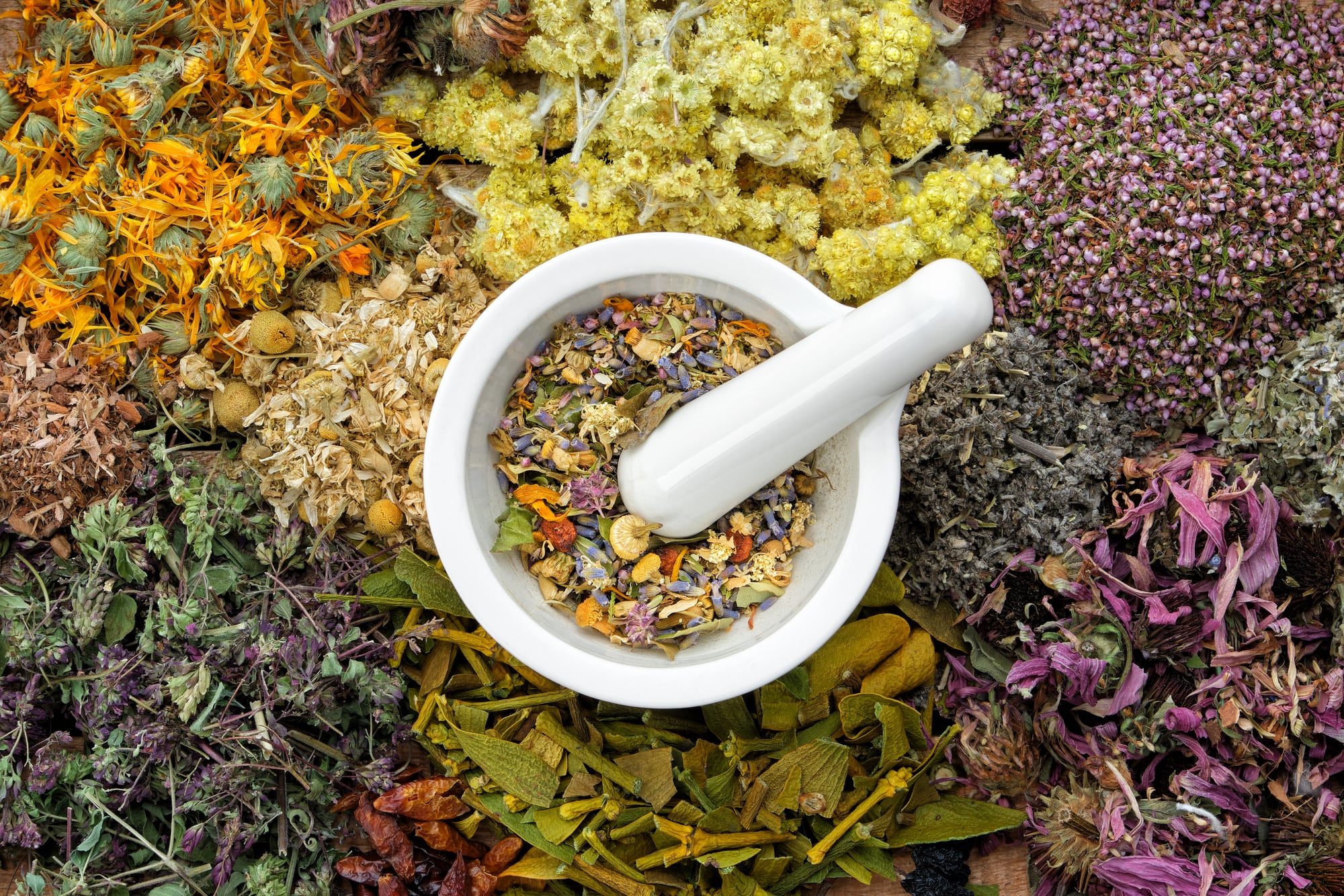As life becomes increasingly fast-paced, the risk of experiencing anxiety and stress is rising. In response, many people turn to herbal supplements to calm their minds and support long-term mental health. In this article, we’ll explore the most popular herbal supplements for reducing anxiety, from well-researched herbs to emerging options. Discover which herbal supplement might be best for your anxiety.
Key Takeaways
- The top herbal supplements for anxiety include Ashwagandha, Chamomile, Lavender, Passionflower, Kava Kava, and Valerian.
- Each herb works differently to affect the nervous system and regulate mood.
- Natural herbs can also have side effects such as headaches, stomachaches, allergies, drowsiness, and impaired concentration.
Is There An Effective Herbal Treatment for Anxiety?
Yes, herbal treatments can be helpful for those with anxiety and stress. Anxiety disorders affect more than 18% of the US population each year [1]. Recognizing the potential dangers of these conditions, various treatments, including prescription medications and natural solutions, have been explored. While some herbal treatments for anxiety have been studied, more research is needed to fully evaluate their risks and benefits.
Herbs like Chamomile and Valerian are notable examples of those with potential benefits. However, this does not mean you should stop using prescribed medications in favor of herbal treatments. Herbal remedies should be used under medical supervision, as many herbs can cause side effects and interact with other medications.

How Do Herbs For Anxiety Work?
For centuries, various cultures have used herbs to support mental health, and this trend has gained popularity in the US in recent decades. This is particularly true among those who want to address mental health issues like anxiety without the side effects commonly associated with traditional medications.
Herbs can affect the body in different ways. For example, Ashwagandha helps lower blood cortisol levels, a key hormone in stress responses. Meanwhile, Passionflower increases GABA levels in the brain, promoting relaxation. Valerian root supports relaxation by affecting gamma-aminobutyric acid (GABA) receptors in the brain, reducing anxiety and aiding sleep.
Note: The Federal Drug Administration (FDA) does not regulate or endorse herbal supplements. Therefore, choosing products from reputable companies with clear sourcing is crucial to ensure safety and effectiveness.
10 Common Herbal Supplements for Anxiety
Ashwagandha
Ashwagandha, scientifically known as Withania somnifera, is a well-regarded adaptogen among herbal supplements for anxiety, as it influences the body’s stress response and hormone levels.
A 2019 study demonstrated that Ashwagandha could significantly lower stress and anxiety levels. In an 8-week trial involving 58 stressed participants, those taking Ashwagandha showed reduced cortisol levels and improved sleep quality compared to the placebo group.
Additionally, another 2019 study with 60 individuals experiencing mild anxiety revealed that a 240 mg dose of Ashwagandha over 60 days led to notable decreases in anxiety levels.
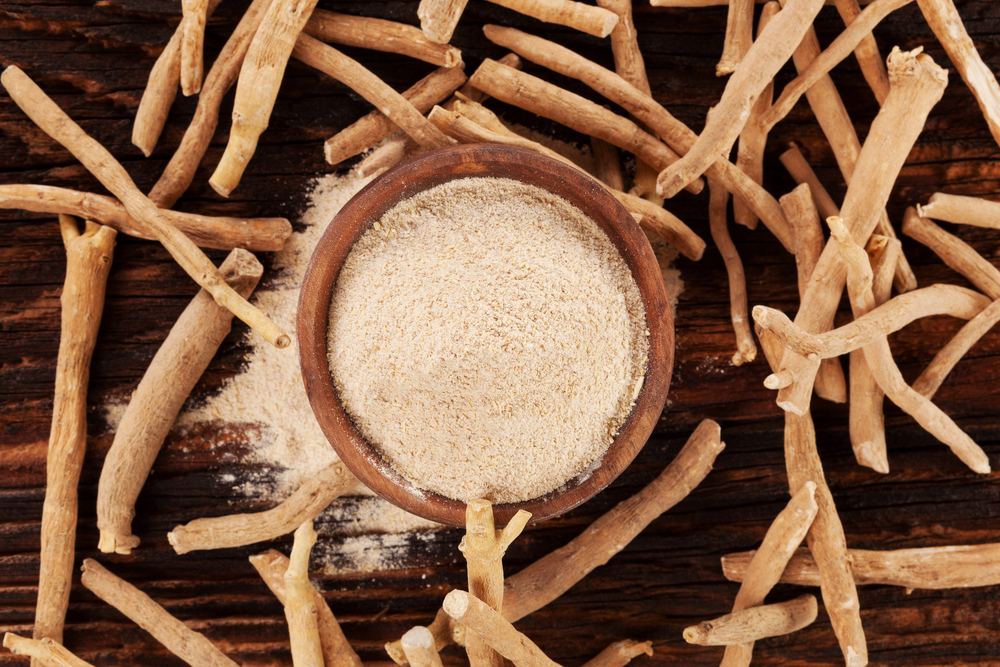
Chamomile
Chamomile has a long history of use in medicine for relieving stress and anxiety, making it a popular choice among natural supplements for anxiety and stress. It can be enjoyed as tea, taken in capsule form, or applied as a topical cream, primarily for its relaxing effects and ability to reduce anxiety symptoms.
A 2016 study explored the effectiveness of Chamomile as a long-term treatment for Generalized Anxiety Disorder (GAD). In this study involving 93 participants, a daily dosage of 1500 mg of Chamomile over 12 weeks proved effective. Those who continued taking Chamomile were less likely to relapse into GAD compared to those on a placebo, and if they did relapse, their symptoms were less severe.
However, caution is advised when using Chamomile. It may cause allergic reactions in some individuals, particularly those sensitive to plants in the Asteraceae family, including ragweed and marigold. Additionally, Chamomile can increase the risk of bleeding when combined with blood thinners, especially at high doses, and may interact with medications such as warfarin and cyclosporine.
Valerian
Valerian (Valeriana officinalis) is an herb native to Europe and Asia. It has been used for centuries to help with sleep issues, anxiety, and depression. Dozens of trials have been conducted with valerian root extract, with results published in 1980. These studies confirmed that the extract is effective for sleep disorders, particularly in the elderly [5].
A non-controlled study involving 20 Spanish volunteers over two weeks showed that those using valerian (470 mg per night) fell asleep faster, even after consuming caffeine. Additionally, valerian did not cause any side effects [6].
Lavender
Lavender is recognized as one of the effective herbal supplements for anxiety, known for its soothing aroma and nerve-calming properties. The flowers can be brewed into tea or used as essential oil, primarily aimed at alleviating anxiety and promoting a sense of calm.
A 2017 review indicated that lavender essential oil might serve as a beneficial short-term treatment for anxiety disorders, thanks to its terpene compounds like linalool and linalyl acetate, which are thought to interact with chemical receptors in the brain.
However, the evidence supporting lavender’s effectiveness in reducing anxiety remains limited. Potential side effects include constipation, stomach pain, and headaches. It is advisable for children and adolescents to use lavender cautiously due to its possible hormonal effects, and pregnant or breastfeeding women should consult a healthcare professional before use.
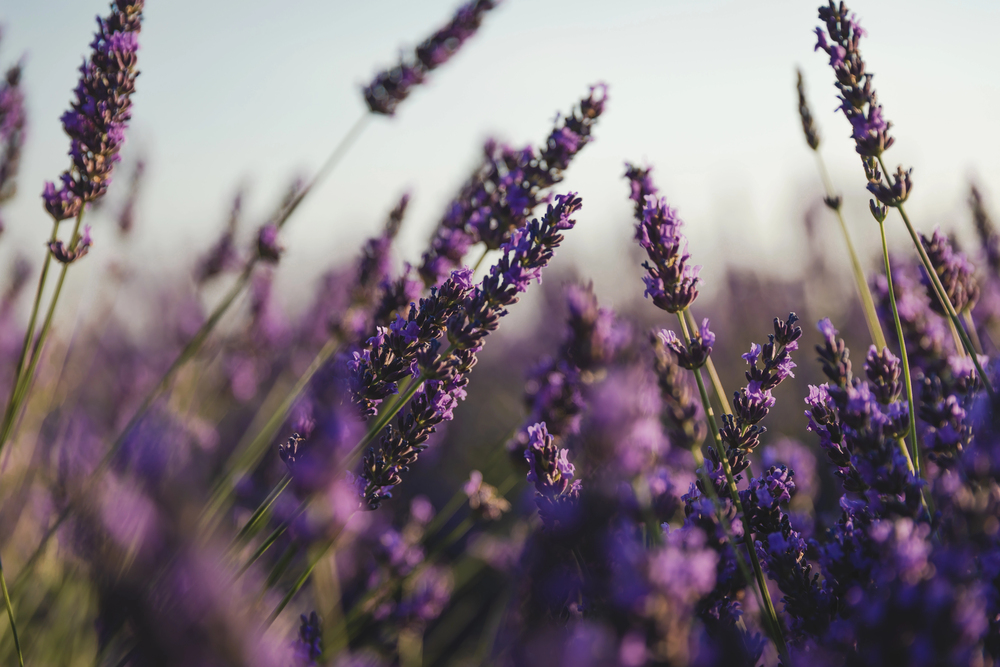
Passionflower
Passionflower, from the Passiflora genus with about 550 species, including Passiflora incarnata, is commonly studied for its ability to support the treatment of anxiety, stress, and restlessness.
From the 1970s to the 1990s, passionflower was listed as an official herbal medicine in the US, UK, Germany, France, Switzerland, Egypt, and India, where it was widely used to treat anxiety and restlessness [8].
In commercial use, passionflower is often combined with other herbs, making it difficult to determine its effects independently. When used short-term and under medical guidance, passionflower is generally considered safe. However, it should not be used during pregnancy or breastfeeding due to safety concerns. Some studies also indicate that passionflower may cause drowsiness, dizziness, and confusion.
Kava Kava
Kava Kava, commonly known as Kava, is a shrub native to the Pacific Islands with the scientific name Piper methysticum. Kava may be effective for the short-term treatment of anxiety. However, there have been reports of serious liver damage from some kava products, even with short-term use [9]. These reports have led to warnings from the US Food and Drug Administration (FDA) regarding kava supplements.
For safety, consult a healthcare provider before starting any kava-containing products. Kava should especially be avoided during pregnancy or breastfeeding.
Lemon Balm
Lemon balm (Melissa officinalis L.) belongs to the Lamiaceae family and is a perennial plant that can grow up to 90 cm tall. It originates from the Mediterranean and Western Asia.
The European Medicines Agency has approved lemon balm leaves for reducing mild mental stress and aiding sleep, as well as addressing digestive issues [10]. A study using a daily dose of 500 mg of lemon balm for 14 days on 71 volunteers found that participants experienced reduced heart palpitations and anxiety after use [11].
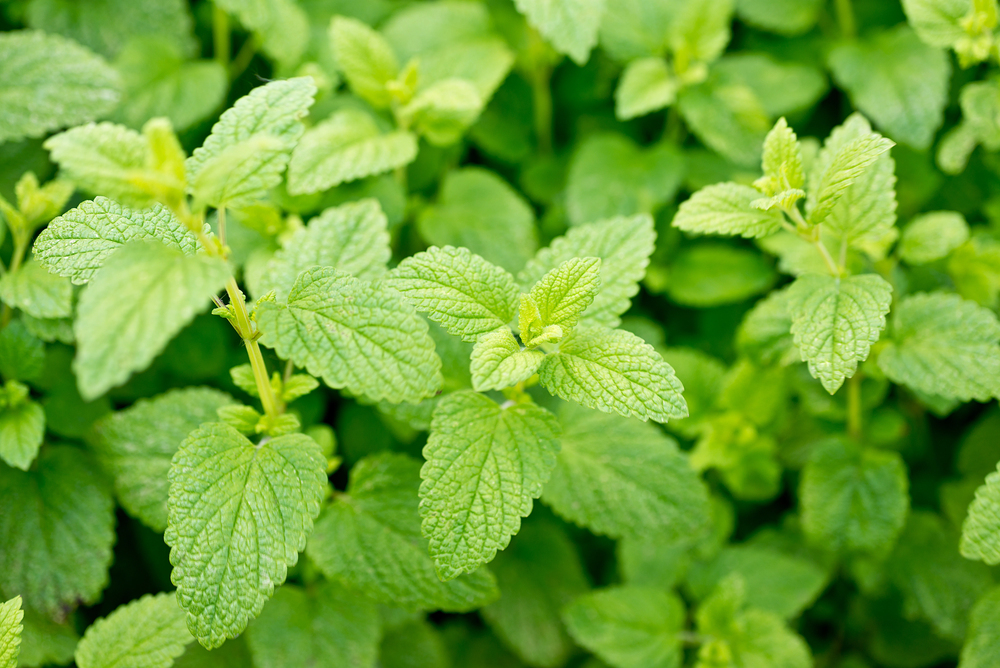
Cannabidiol (CBD)
Cannabidiol is one of the main active components of cannabis and has garnered significant attention for its potential to alleviate anxiety.
A 2019 study showed that cannabidiol might have a calming effect on the central nervous system, helping to reduce feelings of anxiety and stress [12]. Other findings suggest that CBD could be beneficial for individuals with anxiety disorders, though more evidence is needed to confirm these conclusions.
Be cautious when using CBD, as the FDA has not officially approved CBD as a treatment.
Galphimia Glauca
Galphimia glauca is a plant native to Mexico, used as a sedative to reduce anxiety.
A 2018 review indicated some evidence of Galphimia glauca’s effectiveness in treating anxiety. However, resource availability is very limited, and more research is needed to ensure the safety of this herb.
Other Supplements and Vitamins for Anxiety
Other supplements that may help reduce anxiety symptoms include:
- High-dose Vitamin C
- Magnesium
- Fatty acids
- Vitamin B complex
- Omega-3
- Probiotics
- …
Safety Considerations of Herbal Supplements for Anxiety
When using herbal supplements to treat anxiety, there are several important safety factors to consider. Many herbs can cause drowsiness, which might impair concentration and alertness. Therefore, caution is needed when engaging in activities such as driving or performing hazardous tasks.
Additionally, herbs can interact with other medications or supplements, potentially enhancing sedative effects or causing unwanted reactions. This is particularly important if you are taking multiple medications or supplements simultaneously.
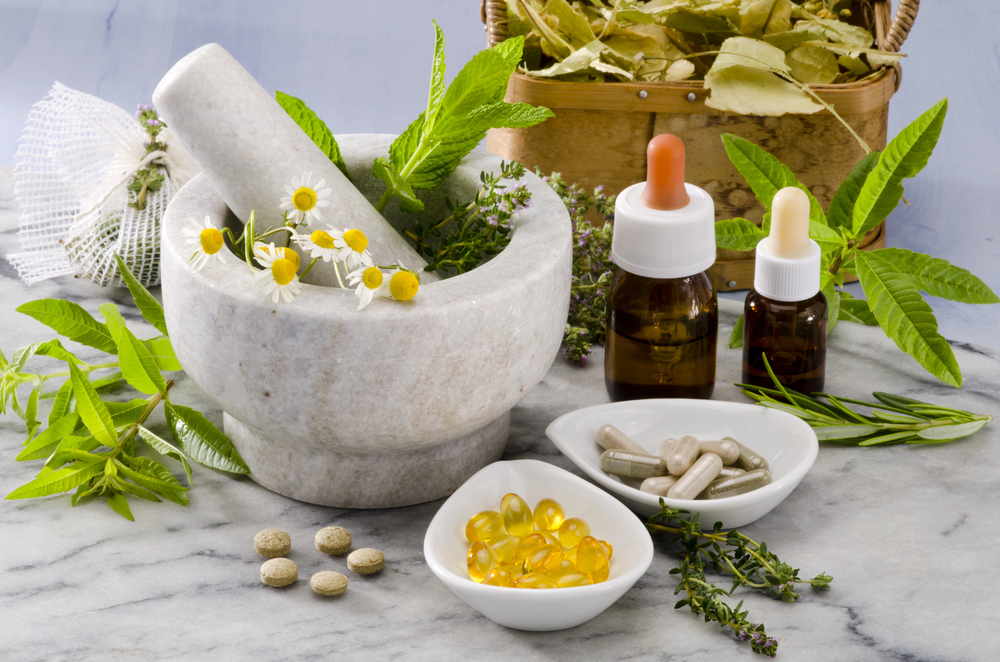
Possible Side Effects and Interactions
As mentioned above, each type of herb may have potential side effects or drug interactions that users need to consider before use. For instance, chamomile may cause allergic reactions in individuals sensitive to the plant family or lead to bleeding if used in combination with blood thinners. Lavender might cause side effects such as constipation, stomach pain, or headaches.
To ensure safety, consult with a doctor or healthcare professional before starting any herbal supplement. They can help you assess potential risks and better understand the benefits and possible side effects of combining herbs with your current treatment regimen.
What is the Best Herbal Supplement for Anxiety?
Among the herbs listed, which one is the best herbal supplement for anxiety? The answer depends on your health condition and how your body responds to each herb.
We cannot provide subjective recommendations for any specific natural supplements for anxiety and stress. Remember, it is crucial and necessary to consult a doctor or healthcare professional before starting any herbal supplement to choose the one most appropriate for your level of anxiety.
Conclusion
In summary, herbal supplements for anxiety can be effective if you select the right type, use the correct dosage, and ensure safety according to your doctor’s guidance. While many herbs show promise in scientific studies, not all are suitable for everyone. Understanding the effectiveness, dosage, and potential side effects of each herb will help you make an informed and safe decision in treating your anxiety.

